Description
(Thymic Peptide for Immune Modulation, Neuroendocrine Balance, and Inflammatory Control)
A Specialized Thymic Peptide Supporting Immune-Inflammatory Regulation and Neuroendocrine Harmony
Thymulin is a naturally occurring nonapeptide secreted by the thymus gland and plays a critical role in regulating immune system function, neuroendocrine signaling, and inflammation resolution. This 15 mg lyophilized peptide, reconstituted into 5 mL of solution, offers a clinically precise tool for practitioners managing patients with immune dysregulation, chronic fatigue, autoimmunity, or neuroimmune syndromes.
Unlike broader immune stimulants, Thymulin works by restoring immune balance, promoting the maturation and function of T-cells, and influencing hormonal pathways through hypothalamic-pituitary-immune axis modulation. It is especially useful in long-term immune restoration protocols, where inflammation and immunosenescence (age-related immune decline) are prominent concerns.
Product Details
- Peptide: Thymulin (synthetic nonapeptide)
- Concentration: 15 mg per vial (lyophilized)
- Reconstitution Volume: 5 mL bacteriostatic water
- Route of Administration: Subcutaneous injection or intranasal application (under physician supervision)
- Storage (Unreconstituted): Store at room temperature (15–25°C)
- Storage (After Reconstitution): Refrigerate at 2–8°C; use within 20–30 days
- Application: Clinical use in immune-modulating, anti-inflammatory, and endocrine-supportive therapy
What Is Thymulin?
Thymulin (also known as Facteur Thymique Sérique) is a thymic peptide hormone composed of nine amino acids complexed with zinc. Its biological activity is dependent on the presence of zinc, which allows it to bind to thymic receptors and influence immune homeostasis.
Thymulin is distinct from other thymic peptides like Thymosin Alpha-1 or Thymosin Beta-4 in that it also exerts effects on neuroendocrine signaling, including the regulation of adrenocorticotropic hormone (ACTH), luteinizing hormone (LH), and growth hormone (GH). This makes it a valuable tool in both immune and hormonal optimization.
Mechanism of Action
Thymulin acts on T-cells, the hypothalamic-pituitary axis, and cytokine-producing immune cells to promote coordinated immune function and homeostasis:
- Promotes T-cell differentiation and cytotoxic activity
- Modulates pro- and anti-inflammatory cytokines (IL-6, TNF-α, IFN-γ)
- Enhances zinc-dependent immune signaling
- Regulates hormonal feedback loops, including adrenal, gonadal, and growth axis hormones
- Improves immune tolerance, making it helpful in autoimmune or allergic states
These functions make Thymulin especially beneficial in multisystem conditions involving both immune and endocrine imbalance.
Clinical and Functional Applications
1. Immune Regulation
- Restores immune competency in chronic infections or post-viral syndromes
- Used in protocols addressing immunosenescence, especially in aging adults
2. Chronic Inflammation and Autoimmune Conditions
- Modulates inflammatory cytokines without suppressing immune function
- Supports immune balance in autoimmunity, allergic reactivity, or histamine intolerance
3. Neuroendocrine Disorders
- May improve hormone signaling in individuals with HPA axis dysfunction, hypogonadism, or growth hormone dysregulation
- Potential adjunct for adrenal fatigue or stress-related endocrine suppression
4. Post-Illness and Recovery States
- Helps regulate overactive immune response post-infection (e.g., Long COVID, Epstein-Barr virus)
- Aids in restoring immune-hormonal rhythm disrupted by prolonged illness or stress
5. Combination Therapy in Peptide Medicine
- Pairs well with Thymosin Alpha-1, BPC-157, GH secretagogues, or anti-inflammatory peptides
- May be used alongside detox and methylation protocols for chronic illness support
Dosing and Administration
- Typical Subcutaneous Dose: 100–500 mcg once or twice daily
- Intranasal Option: 1–2 sprays per nostril once or twice daily (provider directed)
- Cycle Duration: 10–20 days per course; repeat as needed or seasonally
- Reconstitution: Add 5 mL of bacteriostatic water to vial and refrigerate
Always dose under the supervision of a healthcare provider familiar with peptide protocols and immune management.
Safety and Tolerability
Thymulin has demonstrated an exceptional safety profile in both preclinical and clinical studies. It is non-immunogenic, non-suppressive, and does not induce tolerance or desensitization with repeated use.
Mild, rare side effects may include:
- Temporary redness or soreness at injection site
- Mild fatigue or headache (first 24 hours)
- Nasal dryness (if used intranasally)
No adverse hormonal disruptions have been observed in therapeutic ranges.
Contraindications
- Avoid in patients with known hypersensitivity to peptide therapies
- Use with caution in individuals with uncontrolled autoimmune disease or active malignancy unless medically advised
- Not recommended during pregnancy or breastfeeding without physician approval
Storage & Handling
- Store lyophilized vial at room temperature prior to reconstitution
- After mixing, refrigerate at 2–8°C (36–46°F)
- Use within 20–30 days post-reconstitution
- Use sterile handling for all dose withdrawals
Why Choose Thymulin?
- Unique dual action on immune and endocrine systems
- Enhances immune regulation without suppression
- Supports recovery from infection, inflammation, and hormonal disruption
- Non-stimulatory and well tolerated across all age groups
- Integrates seamlessly into multi-peptide wellness protocols
Summary
Thymulin – 15 mg Vial (5 mL Reconstitution) offers a clinically elegant solution for immune modulation, inflammation control, and hormonal balance. Whether used to restore immune tolerance, support neuroendocrine signaling, or enhance resilience after illness, Thymulin is a trusted therapeutic peptide for patients and providers seeking precise, balanced support across complex systems.
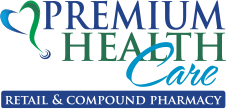
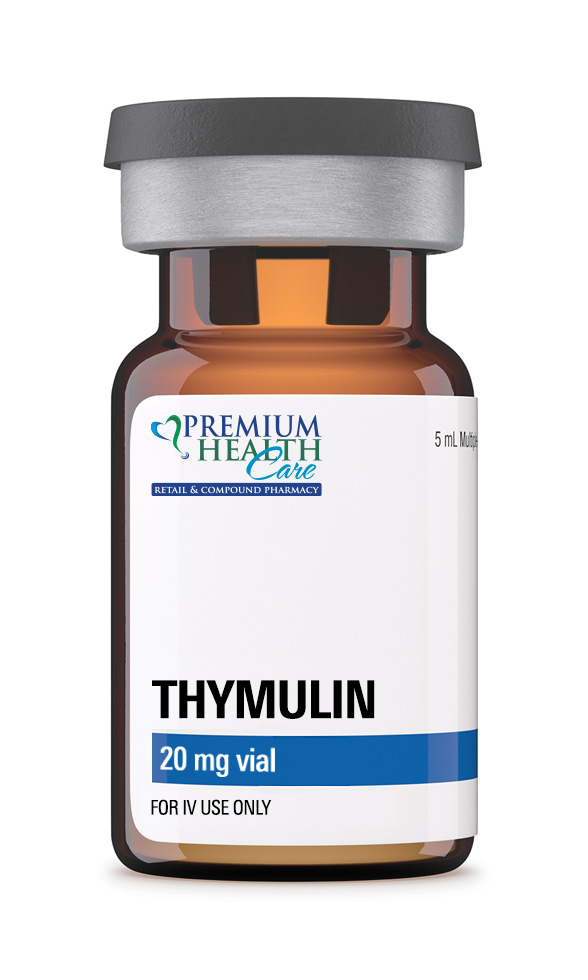
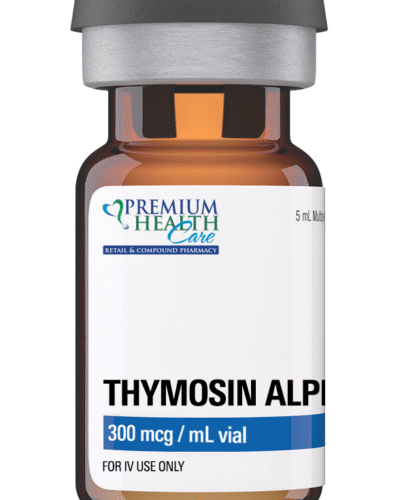
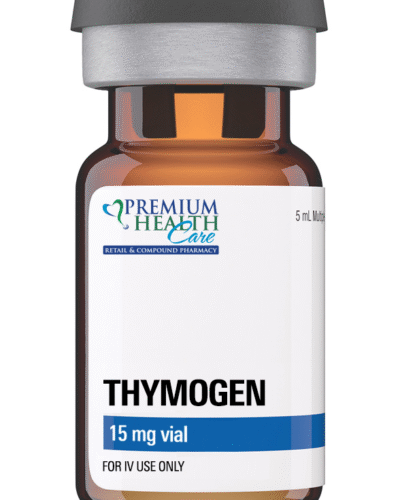

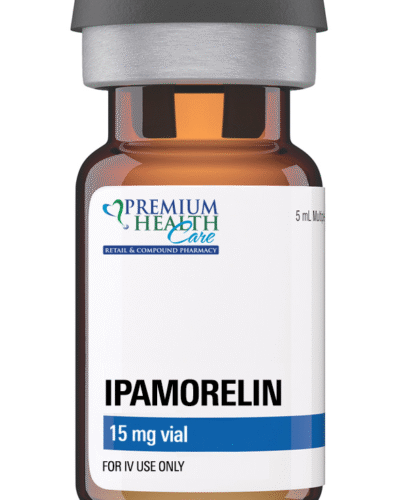
Reviews
There are no reviews yet.